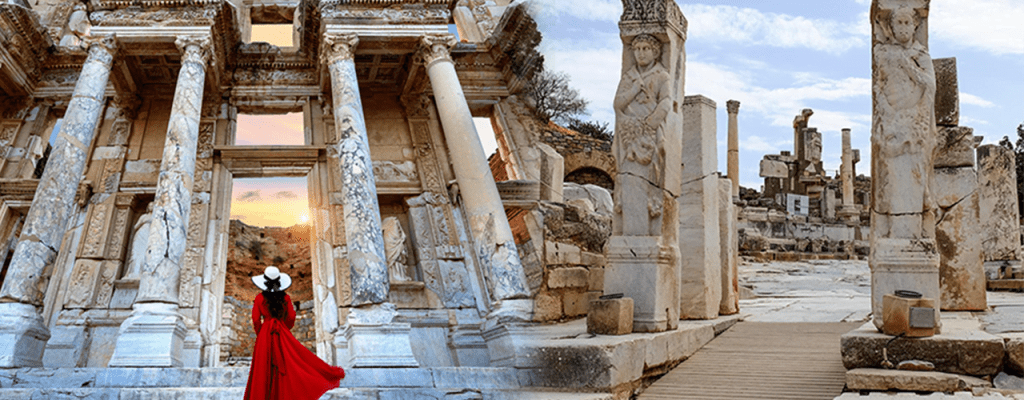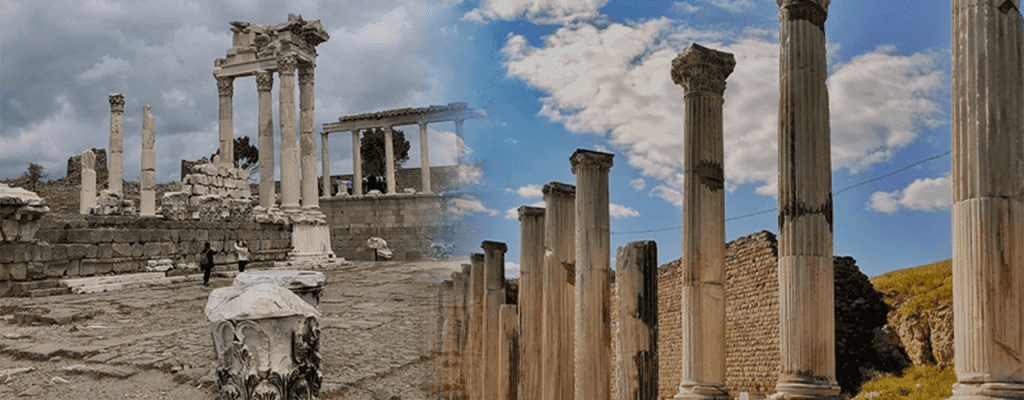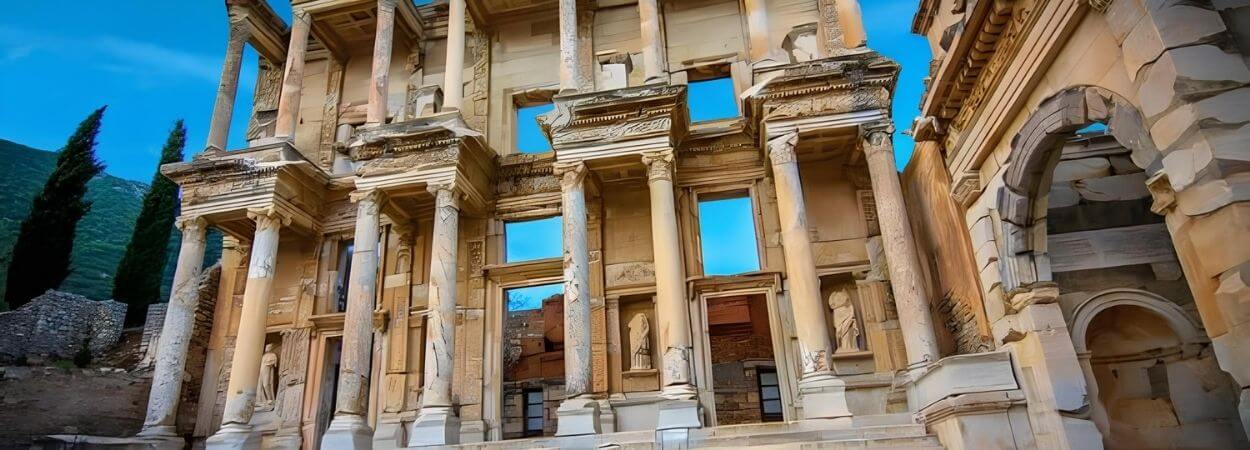Knowledge In The Heart Of History
Anatolia, often referred to as the “cradle of civilizations,” has been home to various cultures throughout history. Among the cultural milestones are the Ancient Libraries Of Anatolia, which served as centers of learning and the spread of knowledge. These libraries not only housed manuscripts but also symbolized the intellectual achievements of their time.
The Role Of Libraries In Ancient Anatolian Civilization
Libraries were more than just repositories of books and manuscripts; they were centres of knowledge, administration and culture. In ancient Anatolia, modern-day Turkey, libraries played a central role in maintaining records, supporting education and connecting societies across regions.
Why Libraries Were Crucial To Ancient Societies


In ancient civilizations, literacy and knowledge were vital for governance, trade and cultural exchange. Libraries stored information related to:
- Administrative records, especially taxes and trade agreements.
- Religious texts and rituals.
- Scientific works in mathematics, astronomy and medicine.
Libraries were symbols of wisdom and progress. They helped preserve cultural knowledge for future generations and facilitated the spread of ideas across the Mediterranean and Mesopotamian regions.
The Spread Of Knowledge Through The Ages
Anatolia’s location at the crossroads of Europe and Asia made it a melting pot of diverse cultures. From the Hittites to the Greeks and Romans, each civilization contributed to the growth of libraries. The transmission of knowledge across regions was made possible through trade routes, wars and cultural assimilation. Ancient Anatolian libraries became centers where Eastern and Western intellectual traditions blended, leading to progress in art, science and philosophy.
Famous Ancient Libraries In Anatolia
The Library Of Celsus: Ephesus’ Iconic Treasure


Library of Celsus is an essential part of our Private Tours. You can explore our Ephesus Private Tours here.
Key features of the Library of Celsus:
- It housed over 12,000 scrolls, making it one of the largest libraries of the ancient world.
- The library’s impressive two-story façade featured intricate carvings, Corinthian columns, and statues.
The Library of Celsus not only served as a center of knowledge but also as a monument honoring Celsus’ contributions to the region. Today, it stands as a testament to the rich intellectual heritage of Anatolia.
The Library Of Pergamon: A Rival To Alexandria


Pergamon is an essential part of our Biblical Tours. You can explore our Biblical Private Tours here.
The Manuscripts And Materials Of Ancient Anatolian Libraries
Clay Tablets And Cuneiform Script
Before the use of parchment and scrolls, civilizations in Anatolia, such as the Hittites and Assyrians, recorded information on clay tablets using cuneiform script. These tablets could withstand centuries of wear, which is why many have survived to the present day.
Characteristics of cuneiform tablets in Anatolian libraries:
- Used primarily for administrative, religious and legal records.
- Written with a stylus on wet clay and then baked to harden.
- Contained texts ranging from epic poetry to daily correspondence and trade documents.
The discovery of these tablets has provided historians with important insights into ancient Anatolian society, its languages, politics and daily life.
The Decline And Rediscovery Of Ancient Libraries
Over time, the libraries of Anatolia faced decline due to wars, natural disasters, and cultural shifts. As empires fell and civilizations changed, many libraries were abandoned or destroyed. However, modern archaeological efforts have brought these treasures back to light.
Modern Archaeological Discoveries
Excavations in sites such as Ephesus, Hattusa, and Troy have unearthed remnants of ancient libraries and their contents. These discoveries include:
- Clay tablets with cuneiform inscriptions.
- Architectural remains, such as library structures and decorative elements.
- Artifacts that reveal how knowledge was preserved and shared.
For example, the Hittite capital of Hattusa housed thousands of clay tablets, offering insights into the administrative and cultural practices of one of Anatolia’s oldest civilizations. Such findings continue to reshape our understanding of history and the crucial role Anatolia played in human development.
Preserving Anatolia’s Legacy: Lessons For The Future
The ancient libraries of Anatolia teach us the importance of preserving knowledge for future generations. As modern societies face challenges in keeping cultural heritage, the lessons from these historical treasures are more relevant than ever.
Key takeaways for preserving knowledge:
- Embrace technological innovations to digitize and protect ancient texts.
- Support archaeological research to uncover hidden parts of our shared history.
- Foster global awareness about the value of cultural heritage sites.
The ancient libraries of Anatolia were more than buildings filled with manuscripts; they were symbols of human achievement, intellectual curiosity and cultural exchange. From the grandeur of the Library of Celsus and the importance of the Library of Pergamon, to the enduring clay tablets of the Hittites, these centers of knowledge played a crucial role in shaping history. Through modern archaeological discoveries and preservation efforts, Anatolia’s legacy continues to live on, reminding us of the timeless value of knowledge.
Exploring the ancient libraries of Anatolia offers a glimpse into a world where wisdom and learning flourished, leaving behind a rich cultural heritage that remains relevant to this day.
To make your journey through Turkey even smoother, see our What to Wear in Turkey guide.



